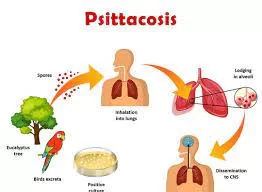In the fast-paced world of adulthood, finding time to exercise regularly during the week can be a daunting challenge. But a recent study published in Nature Aging brings promising news for those who struggle to squeeze physical activity into their busy schedules, showing that ‘weekend warriors’—those who concentrate their exercise on just one or two days a week—may enjoy the same brain health benefits as those who exercise regularly throughout the week.
The study, conducted by a research team from China, analyzed data from over 75,000 participants in the UK Biobank—a large-scale health study tracking around half a million people in the United Kingdom. The average age of participants in this study was 62, with more than 100,000 individuals wearing wrist-worn activity trackers for seven days to monitor their physical activity levels.
Exercise Patterns and Health Outcomes
Participants were divided into three groups based on their physical activity patterns:
- Inactive: Those not meeting the recommended 150 minutes of moderate-to-vigorous physical activity per week.
- Regularly Active: Individuals meeting the guidelines with activity spread throughout the week.
- Weekend Warriors: Participants accumulating more than 50% of their weekly activity across one or two days (not necessarily on the weekend).
Over a median follow-up period of 8.4 years, researchers tracked the onset of neurological diseases such as dementia, stroke, and Parkinson’s disease, as well as psychological disorders like depression and anxiety, using GP records, hospitalization data, and death records.
Impressive Benefits for Weekend Warriors
The findings were striking. Compared to inactive adults, weekend warriors experienced:
- A 26% lower risk of developing dementia.
- A 21% lower risk of stroke.
- A 45% lower risk of Parkinson’s disease.
- A 40% lower risk of depression.
- A 37% lower risk of anxiety.
Remarkably, these protective benefits were comparable to those enjoyed by individuals who exercised regularly throughout the week. The positive effects on mental health were consistent across all age groups, while the reduced risks for dementia, stroke, and Parkinson’s disease were particularly pronounced in those over 65—highlighting the significant benefits of physical activity for older adults.
Flexibility in Exercise Timing
The study also offered good news for those whose weekends might be occupied with work or family commitments. The researchers found that the health benefits were still attainable as long as individuals accumulated the majority of their moderate-to-vigorous physical activity on any one or two days of the week, even if these were not consecutive.
This aligns with previous research using UK Biobank data, which showed that concentrating exercise on one or two days also provided significant heart health benefits. Furthermore, the study emphasized that the type of physical activity doesn’t necessarily matter—whether it’s a gym session, a brisk walk in the park, or even household chores, as long as the activity is moderate to vigorous, the benefits are likely to follow.
Considerations and Future Directions
While the study accounted for various lifestyle and health factors, the researchers noted that other unmeasured factors could have influenced some of the observed associations. Additionally, the study did not assess how changes in physical activity over time might impact brain health—a limitation acknowledged by the researchers.
Nevertheless, the findings add to the growing body of evidence supporting the brain health benefits of moderate-to-vigorous physical activity, regardless of when it is performed during the week. For those struggling to find time for regular exercise, this study provides a reassuring reminder that being a ‘weekend warrior’ can be just as beneficial for brain health as spreading activity throughout the week.
For More Information: Jiahao Min et al, Accelerometer-derived ‘weekend warrior’ physical activity pattern and brain health, Nature Aging (2024). DOI: 10.1038/s43587-024-00688-y












